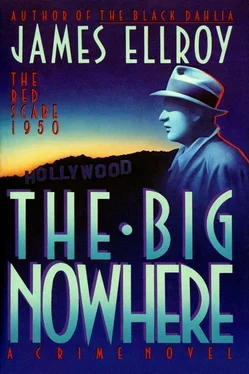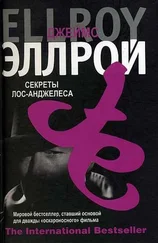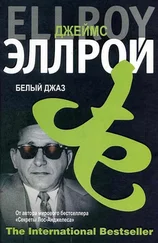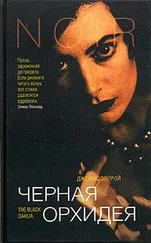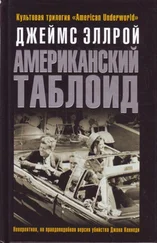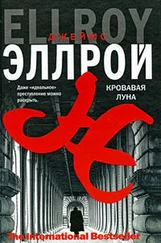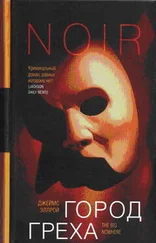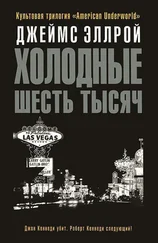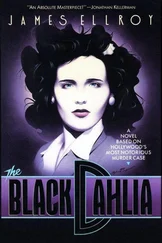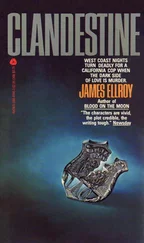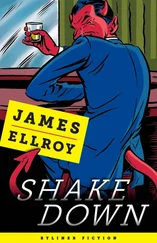Chills grabbed Mal. Sending in decoys, operating , had made his rep at Ad Vice — it was what he was best at as a policeman. He said, “I’ll think on it. There’s just Dudley and me as investigators?”
Loew made a gesture that took in his whole house. “Clerks from the City pool here to handle the paperwork, Ed Satterlee for the use of his contacts, Lesnick for our psychiatric edification. You two to interrogate. I might get us a third man to prowl for criminal stuff, rattle cages, that kind of thing.”
Mal got itchy to read, think, operate. He said, “I’m going to clear up some loose ends at the Hall, go home and work.”
Loew said, “I’m going to prosecute a real estate man for drunk driving on his son’s motorcycle.”
Dudley Smith toasted his boss with an imaginary glass. “Have mercy. Most real estate men are good patriotic Republicans, and you might need his contribution one day.”
Back at City Hall, Mal made calls to satisfy his curiosity on his two new colleagues. Bob Cathcart, a savvy Criminal Division FBI man he’d worked with, gave him the scoop on Edmund J. Satterlee. Cathcart’s take: the man was a religious crackpot with a wild hair up his ass about Communism, so extreme in his views that Clyde Tolson, Hoover’s number-two man at the Bureau, repeatedly issued gag orders on him when he served as Agent in Charge at the Waco, Texas, field office. Satterlee was estimated to earn fifty thousand dollars a year in anti-Communist lecture fees; Red Crosscurrents was “a shakedown racket” — “They’d clear Karl Marx if the dough was right.” Satterlee was rumored to have been bounced off the Allen Squad for attempting a kickback operation: cash vouchers from interned Japanese prisoners in exchange for his safeguarding their confiscated property until they were released. Agent Cathcart’s summation: Ed Satterlee was a loony, albeit a rich and very efficient one — very adept at advancing conspiracy theories that stood up in court; very good at gathering evidence; very good at running outside interference for grand jury investigators.
A call to an old pal working the LAPD Metropolitan Squad and one to an ex-DA’s man now with the State Attorney General’s office supplied Mal with the true story on Saul Lesnick, MD, PhD. The old man was, and remained, a CP card carrier; he had been a Fed snitch since ’39 — when he was approached by two LA office agents, who made him a deal: provide confidential psychiatric dirt to various committees and police agencies, and his daughter would be sprung from her five-to-ten-year sentence for hit and run drunk driving — one year down, four more to go minimum — the girl then currently hardtiming in Tehachapi. Lesnick agreed; his daughter was released and placed on indeterminate Federal parole — which would be revoked if the good doctor ever broke his cover or otherwise refused to cooperate. Lesnick, given six months tops in his fight with lung cancer, had secured a promise from a high-ranking Justice Department official: upon his death, all the confidential files he had loaned out would be destroyed; his daughter’s vehicular manslaughter conviction and parole records would be expunged and all Fed/Municipal/State grand jury notations currently on official paper vis-à-vis Lesnick and his breaches of confidentiality with subversive patients would burn. No one would know that for ten years Saul Lesnick, Communist, psychiatrist, had played both ends against the middle — and had won his holding action.
Mal segued, new colleagues to old business, thinking that the lunger got what he paid for in spades, that his dance with the Feds was good value: a daughter spared broomstick rape and pernicious anemia from Tehachapi’s famous all-starch cuisine in exchange for the rest of his life — shortened by suicide via French tobacco. And he’d have done the same thing for Stefan — he wouldn’t have thought twice.
Paperwork was arrayed neatly across his desk; Mal, stealing glances at the huge grand jury pile, got to it. He wrote memos to Ellis Loew suggesting investigators to dig for backup evidence; he typed routing slips: case files to the green young Deputy DAs who would be prosecuting now that Loew was engaged full-time in battling Communism. A Chinatown hooker killing went to a kid six months out of the worst law school in California; the perpetrator, a pimp known for his love of inflicting pain with a metal-studded dildo, would probably walk on the charge. Two shine snuffs were routed to a youth still short of his twenty-fifth birthday — smart, but naive. This perp, a Purple Cobra warlord, had fired into a crowd of kids outside Manual Arts High School on the off-chance that there might be members of the Purple Scorpions in it. There weren’t; an honor student and her boyfriend went down dead. Mal gave the kid a fifty-fifty chance for a conviction — Negroes killing Negroes bored white juries and they often dropped their verdicts on whim.
The armed robbery/ADW at Minnie Roberts’ Casbah went to a Loew protégé; writing evidence summaries on the three cases took four hours and gave Mal finger cramps. Finishing, he checked his watch and saw that it was 3:10 — Stefan would be home from school. If he was lucky, Celeste would be visiting her crony down the street, bullshitting in Czech, gabbing about the old country before the war. Mal grabbed his stack of psychiatric dirt and drove home, resisting a kid’s urge: to stop at an army-navy store and buy himself a pair of silver captain’s bars.
Home was in the Wilshire District: a big white two-story that devoured his savings and most of his salary. It was the house that was too good for Laura — a kid marriage based on rutting didn’t warrant the tariff. He’d bought it when he returned from Europe in ’46, knowing that Laura was out and Celeste was in, sensing that he loved the boy more than he could ever love the woman — that the marriage was for Stefan’s safety. There was a park with basketball hoops and a baseball diamond nearby; the neighborhood’s crime rate was near zero and the local schools had the highest academic standing in the state. It was his happy ending to Stefan’s nightmare.
Mal parked in the driveway and walked across the lawn — Stefan’s lackluster mowing job, Stefan’s softball and bat weighing down the hedge that he’d neglected to trim. Going in the door, he heard voices: the two-language fight he’d refereed a thousand times before. Celeste was running down verb conjugations in Czech, sitting on the divan in her sewing room, gesturing to Stefan, her captive in a straight-backed chair. The boy was fiddling with objects on an end table — thimbles and thread spools — arranging them by progression of color, so smart that he had to keep occupied even while on the receiving end of a lecture. Mal stood aside from the doorway and watched, loving Stefan for his defiance; glad that he was dark and pudgy like his real father was supposed to be — not lean and sandy-haired like Celeste — even though Mal was blond, and it clued people in that they weren’t blood relations.
Celeste was saying, “...and it is the language of your people.”
Stefan was stacking the spools, making a little house out of them — dark colors the foundation, pastels on top. “But I am to be an American now. Malcolm told me he can get me cit-cit-citizenship.”
“Malcolm is a minister’s son and a policeman who does not understand our old country traditions. Stefan, your heritage. Learn to make your mother happy.”
Mal could tell his boy wasn’t buying it; he smiled when Stefan demolished the spool house, his dark eyes fired up. “Malcolm said Czechoslovakia is a... a... a...”
“A what, darling?”
“A Bohunk rubble heap! A shit pile! Scheiss! Scheiss! In German for mutti!”
Celeste raised a hand, stopped and hit her own pinched-together knees. “In English for you — little ingrate, disgrace to your real father, a cultured man, a doctor, not a consort of whores and hoodlums—”
Читать дальше
